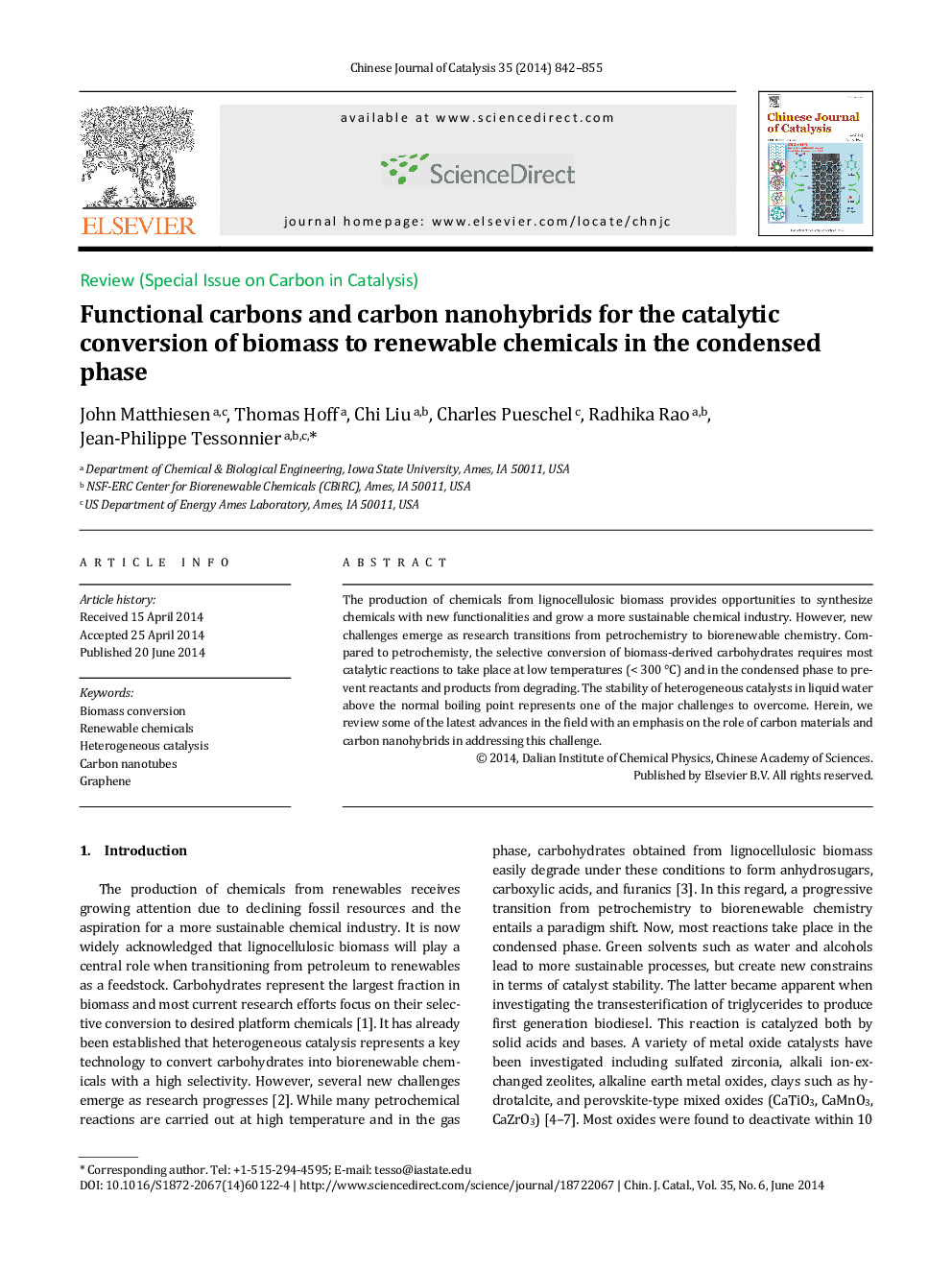| Article ID | Journal | Published Year | Pages | File Type |
|---|---|---|---|---|
| 59711 | Chinese Journal of Catalysis | 2014 | 14 Pages |
The production of chemicals from lignocellulosic biomass provides opportunities to synthesize chemicals with new functionalities and grow a more sustainable chemical industry. However, new challenges emerge as research transitions from petrochemistry to biorenewable chemistry. Compared to petrochemisty, the selective conversion of biomass-derived carbohydrates requires most catalytic reactions to take place at low temperatures (< 300 °C) and in the condensed phase to prevent reactants and products from degrading. The stability of heterogeneous catalysts in liquid water above the normal boiling point represents one of the major challenges to overcome. Herein, we review some of the latest advances in the field with an emphasis on the role of carbon materials and carbon nanohybrids in addressing this challenge.
Graphical AbstractThe transition between petrochemistry and biorenewable chemistry challenges the catalysts figures of merit, in particular the catalysts stability. This review addresses recent advances to design catalysts for the liquid-phase conversion of biomass to chemicals.Figure optionsDownload full-size imageDownload as PowerPoint slide
